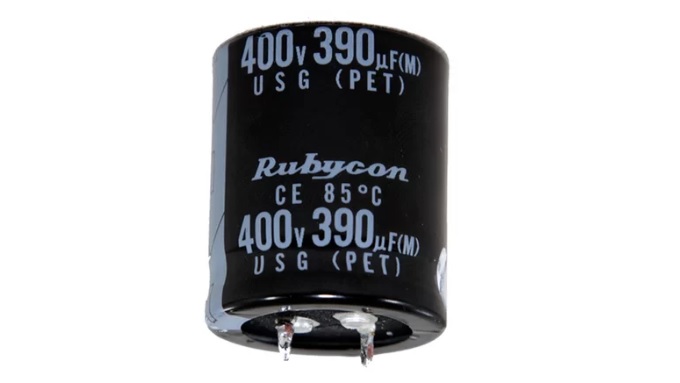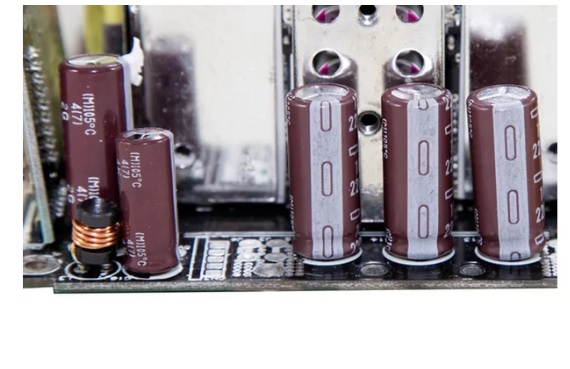What Is a Capacitor? A Basic Definition
A capacitor is an electrical component that stores potential energy. Capacitors hold positive and negative energy on two separate plates separated by an insulator. A capacitor(s) is called cap(s) for short.
Capacitors are used in PSUs (power supply units for supplying power to PC components) and can smooth out voltage through a process also known as filter ripple. Capacitors can also store electrical energy and block direct electrical current, leading to a reliable power stream into your PC.
A capacitor consists of two metal plates separated by an insulator. One of the capacitor’s most essential features is the ability to resist voltage changes. This means that if the voltage applied to a capacitor changes suddenly, the capacitor’s voltage would change more slowly compared to the applied voltage.
In PSUs, which supply power to components, including the CPU, GPU, hard drive and SSD (solid-state drive), the best electrolytic capacitors are those rated at 105 degrees Celsius (221 degrees Fahrenheit) since they have a longer lifespan than those rated at 85 degrees Celsius (185 degrees Fahrenheit). However, the manufacturer of the capacitor also plays a role. Japanese-made capacitors are the preferred choice.
Below are the most important specifications for a capacitor
- Working voltage (if exceeded for prolonged periods, the capacitor will likely fail)
- Working temperature
- Capacitance (the ability to store an electric charge)
- Tolerance (shows how close a capacitor’s capacitance is to its nominal level, expressed in percentages)
- Polarity (for electrolytic capacitors)
- ESR (equivalent series resistance)
- Ripple current
- Leakage current (current "leaking" through the electrical insulator due to a capacitor’s poor isolation resistance).
- Size (larger capacitors can dissipate heat easier and have more dielectric quantity)
This article is part of the Tom's Hardware Glossary.
Further reading:
Get Tom's Hardware's best news and in-depth reviews, straight to your inbox.

Scharon Harding has over a decade of experience reporting on technology with a special affinity for gaming peripherals (especially monitors), laptops, and virtual reality. Previously, she covered business technology, including hardware, software, cyber security, cloud, and other IT happenings, at Channelnomics, with bylines at CRN UK.

